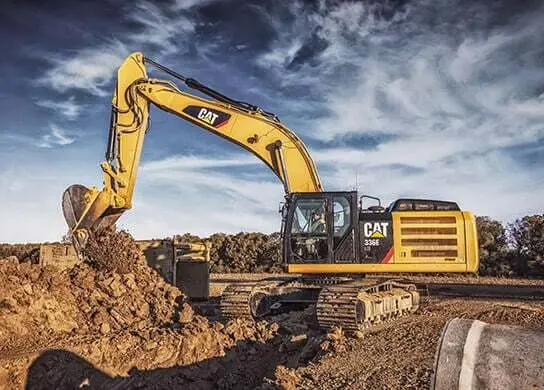When purchasing second-hand Japanese machinery, evaluating its condition is crucial to ensure you’re making a sound investment. Japanese machinery is known for its durability and reliability, but even the best equipment can have hidden issues. At Fareena Corporation Japan, we understand the importance of thorough inspections and evaluations to help you get the best value for your money. In this comprehensive guide, we’ll walk you through the essential steps and considerations for evaluating the condition of second-hand Japanese machinery.
1. Understanding Your Needs
Before you begin evaluating machinery, it’s important to have a clear understanding of your needs. Consider the following questions:
- Purpose: What will you use the machinery for? Is it for heavy-duty tasks or lighter operations?
- Specifications: What are the specific requirements or features you need?
- Budget: What is your budget for the machinery? Are you looking for a bargain or willing to invest more for better quality?
Understanding these factors will help you focus your evaluation on the machinery that best fits your needs.
2. Research the Machinery
- Brand and Model
Start by researching the brand and model of the machinery you’re interested in. Japanese machinery brands like Komatsu, Kubota, and Hitachi are renowned for their quality. Knowing the brand and model will help you understand the typical lifespan, performance, and potential issues associated with the equipment.
- Common Issues
Research common issues or known problems with the specific model you’re considering. This information can provide valuable insights into what to look for during your inspection and help you identify potential red flags.
- Market Value
Check the market value of similar machinery. This will give you an idea of whether the asking price is reasonable and if you’re getting good value for your money.
3. Inspecting the Machinery
- Visual Inspection
Perform a thorough visual inspection of the machinery. Look for signs of wear and tear, rust, and damage. Key areas to check include:
Exterior Condition: Examine the body for dents, scratches, and corrosion. Significant damage could indicate poor maintenance or heavy use.
Engine and Components: Check for oil leaks, cracked hoses, and worn belts. These issues could indicate underlying problems that might require costly repairs.
- Operational Inspection
Operate the machinery to assess its performance. Pay attention to the following:
Engine Performance: Start the engine and listen for any unusual noises. Ensure it runs smoothly without sputtering or stalling.
Hydraulics and Controls: Test the hydraulic system and controls to ensure they function correctly. Look for any sluggishness or erratic behavior.
Attachments and Functions: If the machinery has attachments or additional functions, test them to verify they are working properly.
- Documentation Review
Review any available documentation for the machinery, including:
Service History: Check for records of regular maintenance and repairs. A well-maintained machine with a complete service history is generally a better buy.
Ownership Records: Verify the current ownership and ensure there are no outstanding liens or legal issues associated with the machinery.
4. Evaluating the Maintenance and Repairs
- Maintenance Records
Thoroughly review the maintenance records to assess how well the machinery has been cared for. Regular maintenance is a good indicator of the machine’s condition and longevity.
- Recent Repairs
Ask about any recent repairs and whether they were performed by a qualified technician. Significant repairs or replacements might indicate previous problems that could affect the machinery’s performance.
- Parts Replacement
Inquire about any replaced parts and their quality. Genuine parts are preferable, as they typically ensure better performance and longevity compared to aftermarket or substandard parts.
5. Seeking Professional Advice
- Independent Inspection
Consider hiring an independent technician or inspector to assess the machinery’s condition. An expert can provide a detailed evaluation and identify any potential issues you might have missed.
- Specialist Knowledge
If you’re not familiar with the specific type of machinery, seek advice from specialists or industry experts. They can offer valuable insights and help you make a more informed decision.
- Warranty and Support
Check if any warranties or support services are available for the second-hand machinery. Some sellers might offer limited warranties or after-sales support, which can provide additional peace of mind.
6. Understanding the Seller
- Reputation and Credibility
Research the seller’s reputation and credibility. Look for reviews, testimonials, and any history of complaints. A reputable seller like Fareena Corporation Japan will have a track record of providing quality machinery and transparent transactions.
- Terms and Conditions
Review the terms and conditions of the sale, including return policies and payment terms. Ensure you understand your rights and any potential liabilities before finalizing the purchase.
- Communication
Communicate with the seller to ask any questions or request additional information. A reputable seller will be transparent and responsive, providing you with the information you need to make an informed decision.
7. Finalizing the Purchase
- Negotiation
Be prepared to negotiate the price based on your findings from the inspection and research. Use any identified issues or discrepancies to negotiate a fair price.
- Documentation
Ensure all necessary documentation is completed and provided, including a purchase agreement, proof of ownership, and any maintenance records. Proper documentation is crucial for a smooth transaction and future reference.
- Payment and Delivery
Arrange for payment and delivery of the machinery. Ensure that the payment terms are clear and that the delivery process is well-coordinated to avoid any complications.
8. Post-Purchase Considerations
- Immediate Maintenance
Once you acquire the machinery, perform any immediate maintenance or servicing needed to ensure it operates smoothly. Address any minor issues early to prevent them from becoming major problems.
- Regular Inspections
Implement a regular maintenance schedule to keep the machinery in good condition. Regular inspections and servicing will help extend its lifespan and ensure reliable performance.
- Record Keeping
Maintain detailed records of any maintenance, repairs, and modifications made to the machinery. This documentation will be valuable for future reference and when reselling the equipment.
The Fareena Corporation Japan Advantage
At Fareena Corporation Japan, we pride ourselves on offering high-quality second-hand Japanese machinery that meets rigorous standards. Our team of experts ensures that each piece of equipment is thoroughly inspected and tested before it reaches our customers. We provide transparent information and comprehensive support to help you make the best decision for your needs.
- Rigorous Inspection Process
Our machinery undergoes a meticulous inspection process to ensure it meets our quality standards. We address any issues and provide detailed reports on the condition of the equipment.
- Comprehensive Documentation
We offer comprehensive documentation, including service records and ownership history, to give you complete transparency and confidence in your purchase.
- Expert Support
Our knowledgeable team is here to assist you throughout the buying process. From answering questions to providing post-purchase support, we’re committed to ensuring your satisfaction.
Conclusion
Evaluating the condition of second-hand Japanese machinery requires careful consideration and thorough inspection. By understanding your needs, researching the machinery, inspecting its condition, and seeking professional advice, you can make an informed decision that ensures you get the best value for your investment.
At Fareena Corporation Japan, we are dedicated to providing high-quality second-hand Japanese machinery with transparent information and expert support. Explore our inventory and experience the reliability and excellence of Japanese machinery with confidence.

